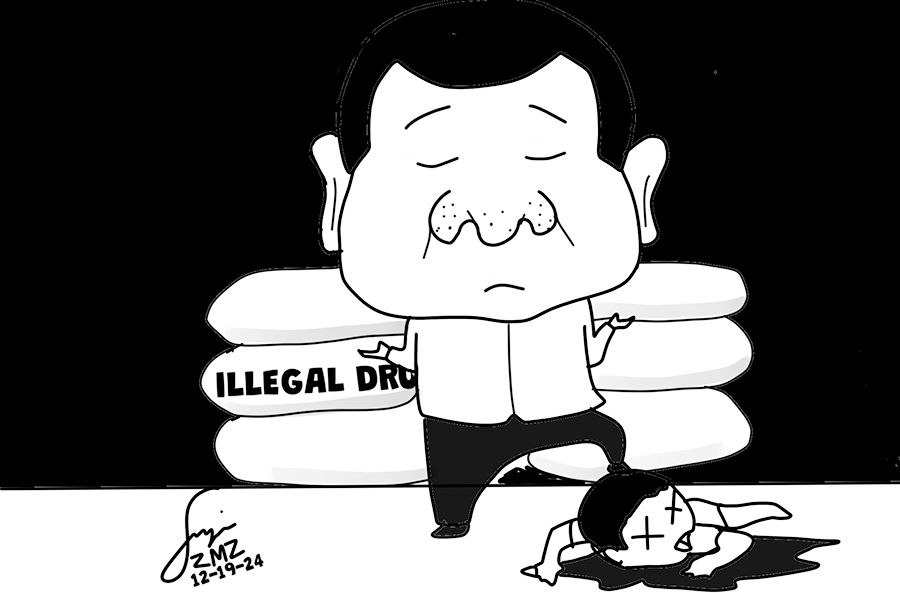EDITORIAL: Betrayed Trust
- Bicolmail Web Admin

- Dec 20, 2024
- 3 min read

THE revelations from the House quad committee about former President Rodrigo Duterte’s alleged involvement in a “grand criminal enterprise” under the guise of his war on drugs are both shocking and deeply disheartening.
What was once touted as a decisive campaign to eradicate illegal drugs and criminality has, according to the findings, been unmasked as a façade for profiteering, abuse of power, and the perpetuation of violence.
Congressman Romeo Acop’s assertion that Duterte has become “the face of illegal drugs and criminality” underscores the gravity of the accusations. The testimonies presented—from law enforcement officers, former government officials, and victims’ families—paint a damning picture of a government that allegedly manipulated public trust for personal and political gain.
The drug war, it appears, was not about protecting Filipinos but exploiting the nation’s vulnerabilities for sinister ends.
Duterte’s rise to power was built on a promise to cleanse the country of the scourge of illegal drugs. This platform resonated with millions of Filipinos who believed in his rhetoric of swift justice and unflinching leadership. Yet, the quad committee’s findings suggest that this promise was a monumental deception.
If proven true, Duterte’s administration used the war on drugs to eliminate competition, enrich a privileged few, and perpetuate a culture of fear and impunity.
The testimonies of whistleblowers like Eduardo Acierto and Royina Garma highlight the systemic corruption within the Duterte administration.
Allegations of drug smuggling operations linked to Duterte’s associates and family members, the existence of a rewards system for extrajudicial killings, and the involvement of powerful Chinese businessmen paint a picture of a presidency deeply entangled in the very criminality it vowed to destroy.
The human cost of Duterte’s war on drugs is staggering. While official records cite over 6,000 deaths, human rights groups estimate the toll could be as high as 30,000. These are not just numbers—they are lives cut short, families shattered, and communities scarred by a campaign that prioritized fear over justice.
The reward system incentivizing police officers to kill alleged drug offenders is a chilling revelation of how state mechanisms were weaponized to commit atrocities under the guise of law enforcement.
Duterte’s admission of personal involvement in killings during his tenure as Davao City mayor and his flippant acknowledgment of the carnage during his presidency only deepen the moral and legal questions surrounding his leadership. These statements not only reveal a blatant disregard for human rights but also a dangerous normalization of violence as a tool of governance.
The quad committee’s findings are a pivotal moment for the nation. They signal that no one, not even a former president, is above the law. The courage of the committee members, witnesses, and whistleblowers to expose these alleged abuses is commendable, but the road to accountability is fraught with challenges.
Duterte’s enduring popularity and the entrenched culture of impunity in the Philippines make this a daunting task.
As the quad committee prepares to present its initial findings to the plenary, the public must remain vigilant. This is not just about prosecuting one man—it is about dismantling a system that allowed such abuses to flourish. Legislative measures, such as the proposed bill to penalize extrajudicial killings, are critical steps toward ensuring that such atrocities are never repeated.
The allegations against Duterte represent a profound betrayal of the Filipino people. If true, they reveal a leader who exploited the hopes and fears of a nation for personal and political gain. The war on drugs, once seen as a necessary battle against a national crisis, may ultimately be remembered as one of the darkest chapters in Philippine history.
The fight for accountability is not just about seeking justice for the victims—it is about reclaiming the integrity of our institutions and restoring the trust of the people.
The Filipino nation deserves a government that serves its citizens, not one that preys on their vulnerabilities. As the truth emerges, may it fuel our collective resolve to demand justice and ensure that such a betrayal is never repeated.

Comments